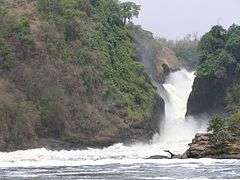Nero exploration of Nile river

The Roman exploration of the Nile River under Nero was a Roman attempt to reach the sources of the Nile river. It was organized by emperor Nero in 60/61 AD. How successful the expedition was is disputed by historians.
History
Emperor Nero around 61 AD sent a small group of praetorian guards to explore the sources of the Nile River in Africa. He did this in order to obtain information for a possible conquest of Ethiopia, as was called Equatorial Africa (and everything south of Egypt) by the Romans. The Roman legionaries navigating the Nile from southern Egypt initially reached the city of Meroë and later moved to the Sudd, where they found huge difficulties in going further.
Seneca wrote about this exploration and detailed that the sources were from a big lake in central Africa, south of the swamp region now called "the Sudd" in Southern Sudan. But other Roman historians, such as Pliny, suggest that the exploration was done in order to prepare a conquest of Ethiopia by Nero's legions.[1]
However the death of Nero prevented further explorations of the Nile as well as a possible Roman conquest south of Roman Egypt.
Some historians suggest that the Roman legionaries of Nero probably reached the Murchison Falls in Uganda (but there it is a major controversy about this very difficult achievement).[2]
See also
References
- ↑ Buckley, Emma; Dinter, Martin (3 May 2013). A Companion to the Neronian Age. John Wiley & Sons. p. 364. ISBN 9781118316535.
- ↑ Vantini, Giovanni Da dove viene l'acqua del Nilo? Ricerche e risposte di antichi scienziati Piroga: volume 8, numero 23, pgs. 88-91 (url=http://www.volint.it/piroga/piroga10/nilo.pdf)
Bibliography
- Emma Buckley, Martin Dinter. A Companion to the Neronian Age. Publisher John Wiley & Sons. Oxford, 2013 ISBN 1118316533